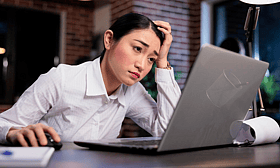The Evolution of Work Culture: A Shift Towards Balance
The landscape of work has undergone a significant transformation over the years, especially in the wake of the pandemic. As we progress into 2025, discussions surrounding work-life balance and the structure of working hours have gained momentum, particularly in light of recent events involving Bollywood star Deepika Padukone. Her decision to withdraw from a film directed by Sandeep Reddy Vanga after demanding an eight-hour work shift as a new mother has sparked a broader conversation about the expectations placed on employees in various industries.
The Call for Change
Reports suggest that Padukone’s departure was influenced by her requests for a more manageable work schedule and appropriate compensation, alongside her refusal to dub in Telugu for the film. This scenario highlights a growing trend in workplaces where employees are advocating for their personal lives to be respected, sparking the question: should organizations rethink the traditional work format?
A significant study conducted by the World Health Organization indicates that working 55 hours or more each week can increase the risk of stroke by 35% and the likelihood of dying from ischemic heart disease by 17% compared to a 35-40 hour work week. These alarming statistics reveal the detrimental effects of prolonged working hours on health and well-being, underscoring the urgent need for a shift towards a more sustainable work culture.
The Post-Pandemic Work Environment
The post-COVID-19 era has seen a rise in hybrid work cultures, yet many employees find this model lacking in clarity. The concept of flexibility in working hours has often led to blurred boundaries, resulting in employees working longer than anticipated. In an interview, Padukone emphasized the necessity of recharging outside of work to maintain productivity, echoing sentiments shared by many professionals today.
Amrita Kumar, the vice-president and head of marketing at Isprava, opines that what we are witnessing is a cultural reset. The glorification of relentless busyness is diminishing, giving way to a demand for structure and intentionality in work-life balance. Many employees now prefer defined working hours that allow them to disconnect from work and be fully present in their personal lives. This desire for balance, particularly in the wake of burnout experienced during the pandemic, is prompting a renaissance of the classic nine-to-five work schedule.
The Importance of Routine
With remote work becoming increasingly prevalent, establishing a consistent work routine has emerged as a priority for many employees. Organizations must adapt to these expectations by prioritizing flexibility, transparency, and overall employee well-being. Harpreeth Suri, a prominent mother influencer, shares her perspective on the detrimental effects of long working hours. After leaving the corporate environment, she found liberation in dedicating time to her family and personal interests, emphasizing that true happiness stems from a balanced life rather than mere professional accomplishments.
The rise of the “slow life” culture, which encourages mindful living and redefines productivity, is indicative of a broader societal shift. Suri notes that many professionals are now seeking a better equilibrium between their personal and work lives, a trend that is likely influenced by the values of the younger workforce.
Challenges in Certain Professions
Despite the growing demand for structured work hours, not all professions can conform to this ideal. Archana Jain, CEO of PR Pundit Havas Red, asserts that in industries like marketing and public relations, the 24/7 nature of client demands often necessitates flexibility that traditional nine-to-five schedules do not accommodate. However, Jain emphasizes that maintaining work-life balance is crucial, and organizations must prioritize mental well-being alongside performance metrics.
To address the challenges of extended work hours, Jain’s firm has implemented a hybrid work model, allowing for two remote workdays each week to alleviate commute stress and facilitate better management of personal responsibilities. They also promote digital detox weekends following intense campaigns, recognizing the importance of recharging for sustained creativity and energy.
Conclusion: Towards a Human-Centric Workplace
In a world that rarely pauses at 5 PM, achieving balance requires more than just rigid adherence to clocking in and out. It necessitates thoughtful policies and structures that respect personal time while fostering individual ambitions. The goal is not to revert to outdated practices but to embrace a dynamic workplace that prioritizes flexibility, empathy, and a human-first approach.
The ongoing dialogue around work culture reflects our evolving understanding of what it means to work effectively while maintaining a fulfilling personal life. As we navigate these changes, the emphasis on mental health and work-life balance will undoubtedly shape the future of work in various sectors, making it imperative for organizations to adapt accordingly.

